
Identifying and applying transformations: translation, reflection, and rotation - Mathematics Instructional Plan
- Subject:
- Mathematics
- Material Type:
- Lesson Plan
- Provider:
- VDOE
- Author:
- VDOE
- Date Added:
- 10/07/2024

Identifying and applying transformations: translation, reflection, and rotation - Mathematics Instructional Plan

Translating and reflecting right triangles and rectangles on the coordinate plane - Mathematics Instructional Plan

Reflecting, Dilating, and Translating Functions - Mathematics Instructional Plan
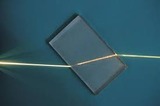
Mixed format assessment (mutliple choice, fill in the blank, short answer) covering reflection, refraction, visible spectrum, waves and opacity. There is a question at the end of the test over scientific investigation design and light.
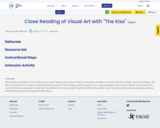
This activity is intended as an introduction to close-reading using visual media. In this lesson, students will review and then closely "read" the painting, "The Kiss" by Gustav Klimt in order to understand the process of close-reading and its impact on our understanding of texts. Once students have learned how to conduct close-reading of a visual text, they reflect on how they might transfer this skill to the written word.
This activity also includes optional extension activities that incorporate poetry into the lesson.
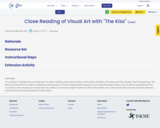
This activity is intended as an introduction to close-reading using visual media. In this lesson, students will review and then closely "read" the painting, "The Kiss" by Gustav Klimt in order to understand the process of close-reading and its impact on our understanding of texts. Once students have learned how to conduct close-reading of a visual text, they reflect on how they might transfer this skill to the written word.
This activity also includes optional extension activities that incorporate poetry into the lesson.
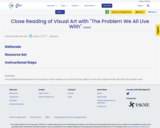
Once students have learned how to conduct close-reading of a visual text, they reflect on how they might transfer this skill to the written word.
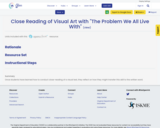
Once students have learned how to conduct close-reading of a visual text, they reflect on how they might transfer this skill to the written word.
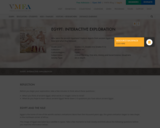
Who were the ancient Egyptians? Explore objects from ancient Egypt to discover how the Egyptians lived and what they believed in this Interactive Exploration featuring works of art from the VMFA's collection.
This resource consists of background information on Egyptian geography and climate, Egyptian life and society, role of the pharaoh, the purposes of ancient art, the role of scribes, hieroglyphics, the afterlife and mummification, Nubia (Egypt's southern neighbor), comparisons/contrasts to art from other parts of Africa, and a discussion on the legacy of Egyptian art (Egyptomania).
Woven throughout the informational narrative are several different types of looking, thinking and learning activities, all of which call on students' observation and critical thinking skills as they closely examine selected art and artifacts. Reflection questions that encourage deep thinking are featured, along with clickable popups on images that further explain Egyptian art and society. Activities like "Look At This," "What's the Story," "Be the Scribe," will bring student engagement, reflection, and critical and creative thinking to any ancient Egypt lesson!
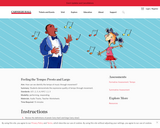
Students demonstrate the expressive quality of tempo through movement.

When world events suddenly shift our perspective and present overwhelming concerns, thinking like an artist can offer a way to creatively reflect on and process our days. Use the art, videos, and ideas in this lesson concept to help students explore ways to visually articulate their experiences by considering the colors, objects, and materials they encounter throughout their days.

Build your own miniature "greenhouse" out of a plastic container and plastic wrap, and fill it with different things such as dirt and sand to observe the effect this has on temperature. Monitor the temperature using temperature probes and digitally plot the data on the graphs provided in the activity.
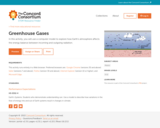
Explore how the Earth's atmosphere affects the energy balance between incoming and outgoing radiation. Using an interactive model, adjust realistic parameters such as how many clouds are present or how much carbon dioxide is in the air, and watch how these factors affect the global temperature.
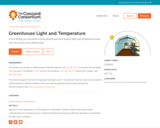
Make your own miniature greenhouse and measure the light levels at different "times of day"--modeled by changing the angle of a lamp on the greenhouse--using a light sensor. Next, investigate the temperature in your greenhouse with and without a cover. Learn how a greenhouse works and how you can regulate the temperature in your model greenhouse.

Students explore the greenhouse effect in this lesson using a computer simulation and develop a model for how it works.

Artists throughout time have come to their work with stories to tell, concepts to explore, and puzzles to work out. By taking time to look at a work of art with a curious and investigative eye, students can activate creative thinking to imagine and expand on the story it presents. Use this interactive exercise to guide students as they examine a work by Roslyn Drexler, creatively document the ideas it presents to them, and consider how their thoughts connect with the artist's own ideas and intentions.

Spending time with a work of art can be an opportunity for thoughtful inquiry and ideation. Imagining what lies beyond the frame of an artwork gives students the opportunity to consider contextual clues and think about how artistic decisions are made.

Art is often about making ideas and beliefs visible. For centuries, religions across the globe have used images to represent complex and abstract ideas about humankind's place in the cosmos. Students can use this interactive exercise to spend thoughtful time with a religious work of art and become curious about the way art can help communicate sacred and profound ideas.
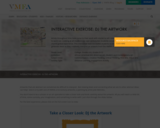
Artists throughout time have come to their work with stories to tell, concepts to explore, and puzzles to work out. Looking at art made in our own century lets students consider complex ideas about our shared global experience. This interactive exercise invites students to slow down their looking and generate ideas as they creatively interpret an artwork from the VMFA's 21st Century collection.
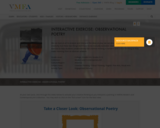
We can look at art to analyze and interpret the ideas at play; we can also use art as a prompt for creativity; but these two things don’t have to be mutually exclusive. Use this simple creative writing exercise to help students collaboratively use creative thinking in tandem with critical thinking as they make meaning from an abstract artwork.